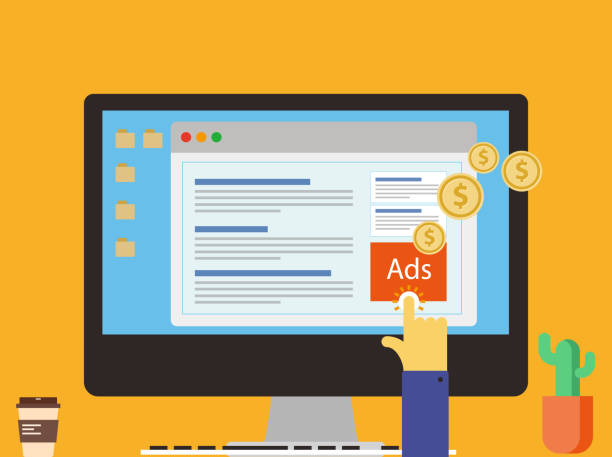Are you ready to channel your passion into a profitable side hustle? Blogging may be the perfect opportunity for you. It’s more than just typing words into a virtual diary; it’s about sharing your unique perspective, knowledge, and experiences with the world while earning an income.
And the best part? You can do it from anywhere, at any time.
The blogging world is dynamic, exciting, and incredibly rewarding. It allows you to connect with like-minded people, grow personally and professionally, and even become an influencer in your niche.
So, if you’re ready to plunge into the blogging world, keep reading for some pro tips on how to start your blogging side hustle successfully and efficiently.
Let’s turn your passion into profit!
Definition And Explanation Of Blogging

Blogging refers to writing and publishing content on a website or an online platform. The term “blog” is a shortened form of “weblog,” which initially referred to a chronological log of information posted on the web.
A blog is typically a personal or professional website regularly updated with new content, often called “blog posts.” These posts can cover various topics, from personal experiences and opinions to expert advice and information on specific subjects.
Blogging serves multiple purposes. It can be a personal journal for some, a platform to share expertise with others, or a strategic marketing tool for businesses. Bloggers often aim to engage their readers by encouraging comments and discussions around their posts.
The content in a blog is often presented in a conversational style. It may include multimedia elements like images, videos, infographics, or podcasts to make the content more engaging and easier to understand.
Over time, blogging has evolved into a sophisticated activity, with many bloggers leveraging search engine optimization (SEO) strategies to attract more readers and monetize their blogs through various methods such as advertising, sponsored posts, or affiliate marketing.
Different Types Of Blogs

There are numerous types of blogs on the internet, each catering to different interests, sectors, and audiences. Here are some of the most common types:
- Personal Blogs: These are the original types of blogs. Personal bloggers share their life experiences, thoughts, and views on various topics.
- Business Blogs: Business blogs are used by companies to share industry insights, company news, and product information, often to attract potential customers or clients.
- Professional Blogs: Professional bloggers make a living from their blogs, often through advertising, sponsored posts, products, services, and affiliate marketing.
- Niche Blogs: These blogs focus on a specific topic or area of interest, such as travel, food, fashion, fitness, technology, finance, etc.
- News Blogs: News blogs cover the latest news and updates in a particular industry or subject. They can also be broader in scope, covering general news from various sectors.
- Educational Blogs: These blogs provide educational content, tutorials, guides, and resources to readers.
- Lifestyle Blogs: Lifestyle bloggers write about various topics that interest them, including home decor, health, beauty, recipes, etc. Their content is often centered around their personal lives and experiences.
- Travel Blogs: Travel bloggers share their travel experiences, tips, destination guides, and reviews with their readers.
- Tech Blogs: Tech bloggers write about technology-related topics like software, hardware, gadgets, tech news, reviews, etc.
- Fitness and Health Blogs: These bloggers share health and fitness advice, tips, workouts, diet plans, etc.
- Food Blogs: Food bloggers share recipes, cooking tips, restaurant reviews, and food photography.
Each type of blog has its unique characteristics and target audience, but they all share the common goal of engaging readers and providing valuable content.
How Blogging Can Become A Profitable Side Hustle
Blogging can become a profitable side hustle through various revenue streams. You can earn money through advertising, sponsored posts, affiliate marketing, and selling products or services.
For example, according to a survey by ConvertKit, successful bloggers can earn over $50,000 per year. It requires consistent effort, quality content, and a strategic approach to monetization.
Getting Started with Your Blog
Starting a blog involves several steps. You need to choose a topic or niche, select a blogging platform, pick a domain name, set up hosting, and design your blog.
The key is to pick a topic you’re passionate about and create a blog that reflects your unique voice and style.
According to a report by WordPress, over 409 million people view more than 20 billion pages each month, indicating the vast potential audience for blogs.
Choosing a Niche or Topic
Choosing a niche or topic for your blog is crucial for its success. Your niche should be something you’re passionate about and knowledgeable in. For instance, a food blog could be a great option if you love cooking.
Picking a Blog Name and Domain
Your blog name and domain should be unique, easily remembered, and related to your niche. For example, “Smitten Kitchen” is a popular food blog that reflects its niche in its name.
Setting Up Your Blog (Platform, Hosting, Design)
Setting up your blog involves choosing a blogging platform (like WordPress), hosting (a service that stores your site online), and designing your blog. WordPress powers over 39.5% of all websites, according to W3Techs, making it a popular choice for bloggers.
Creating Engaging Content
Creating engaging content is key to attracting and retaining readers. Your posts should provide value to your audience, whether that’s through information, entertainment, or inspiration. Blogs are the 5th most trusted source for accurate online information.
Tips for Writing Engaging Blog Posts
Engaging blog posts involves using a compelling headline, writing in a conversational tone, including visuals, and incorporating a call-to-action.
For example, BuzzSumo found that headlines with numbers attract more social shares.
Using SEO for Better Visibility
Search Engine Optimization (SEO) helps your blog get found by search engines, increasing your visibility and traffic. This involves using relevant keywords, optimizing meta descriptions, and building backlinks.
Monetizing Your Blog
Monetizing your blog involves generating revenue from your blogging efforts. This can be achieved in several ways, each with its own potential benefits and challenges. The key is to choose a monetization strategy that aligns with your blog’s content and audience.
Ads

Displaying ads on your blog is one of the simplest ways to start making money. Platforms like Google AdSense allow you to display ads and earn money based on how many people view or click on them. Businesses make an average of $2 in revenue for every $1 they spend on Google Ads, indicating the potential profitability of this method.
Sponsored Posts
Sponsored posts involve partnering with a company to create content that promotes their product or service. You get paid for creating and sharing this content with your audience.
39% of marketers increased their influencer marketing budget in 2019, highlighting the growing demand for sponsored content.
Affiliate Marketing
With affiliate marketing, you promote products or services from other companies and earn a commission on any sales through your referral links. For example, Amazon’s affiliate program offers up to 10% advertising fees.
Selling Products or Services
If you have a product or service that aligns with your blog’s niche, selling it directly to your readers can be highly profitable. This could be anything from an eBook or online course to consulting services or handmade products. Successful course creators can earn over $100,000 per year.
How To Choose The Right Monetization Strategy For Your Blog
Choosing the right monetization strategy involves understanding your blog’s niche, audience, and revenue-generating opportunities. Aligning your monetization strategy with your blog’s content and audience is essential.
If you are knowledgeable about a specific subject, selling online courses could be a profitable option (Kinsta). Affiliate marketing can be particularly effective if you don’t sell a product or service yourself (HubSpot).
Lori Ballen recommends exploring different strategies and finding the one that fits best with your blogging goals and style.
Promoting Your Blog
Promoting your blog is crucial for attracting readers and building an audience. Without promotion, even the most engaging, high-quality content may go unnoticed. According to Neal Schaffer, SEO, social media marketing, email marketing, and guest blogging can help increase your blog’s visibility and reach.
Importance Of Promoting Your Blog
Promoting your blog is important for several reasons. It helps increase your visibility, attract more readers, build a community around your blog, and boost your SEO efforts. As Rick Orford suggests, effective blog promotion can increase income, especially with a well-chosen monetization strategy.
Using Social Media For Promotion
Social media is a powerful tool for blog promotion. Platforms like Facebook, Twitter, Instagram, and Pinterest allow you to share your content with a large audience and engage directly with your readers.
Effective Strategies For Blog Promotion
There are many effective strategies for blog promotion. These include optimizing your content for search engines, guest posting on other blogs, collaborating with influencers, and leveraging email marketing.
Blogging Wizard advises freelancing as a quick way to earn money from your blogging skills. Remember, the most effective promotion strategies are those that reach your target audience and encourage engagement with your content.
Conclusion
Blogging can be a profitable side hustle with the right strategies in place. From choosing a niche, setting up your blog, and creating engaging content to implementing SEO, each step plays a significant role in the success of your blog.
Monetizing your blog through ads, sponsored posts, affiliate marketing, or selling products or services can turn your passion into income.
However, it’s important to remember that profitability doesn’t come overnight. It requires consistent effort, patience, and continuous learning.
As you keep providing valuable content to your readers, promoting your blog effectively, and optimizing your monetization strategies, you increase your chances of turning your blog into a profitable venture.
In the end, the most successful blogs manage to create a strong connection with their audience. So, focus on building that relationship, and the profits will follow.


